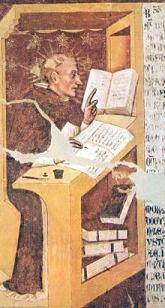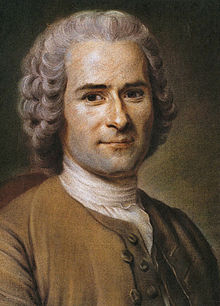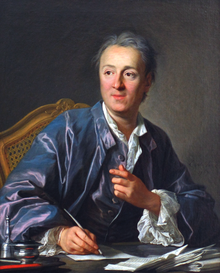(New Instrument of Threes)
- page three -
(The Study of Threes)
http://threesology.org
...The "Novum Organum Threesiarum" is a means of attempting an overall surveyor's map and trail (of bread crumbs the previously mentioned "shadow animals" won't eat). And even though I'm making museful allusions to my own "threes" collecting and research, the images might help some readers get the gist of what I'm trying to convey without rendering too far in either direction of ascertainable comprehension— or try to deliberately equivocate in an attempt to imply it can not be grasped without indulging in some form of esoteric knowledge. I am not intentionally trying to be evasive or place up obstacles like some business, government or religion who uses hiring policies, eligibility requirements, or formulaic recitals like a rite of passage, labyrinth, or hoop-jumping gauntlet. There's far too much of the "join the club", "become a member", or "patriotic chanting, garment wearing, do-as-I-say-but-not-as-I-do" nonsense already in vogue, and are reminiscent of the activities we used to do in childhood with neighborhood kids.
A subject can remain in the dark if its illumination exceeds the flimsy torches of present words, and ideas. When a forest fire is set aflame, the light emitted by a campfire is but a minuscule shadow thereof... Far too many think our present symbolic languages (words, numbers, symbols, etc.,) are accurate and adequate enough to describe and define all perceptions. In actuality, our present forms of communication are worse than the picture writing used by peoples in the past... when compared to that which I hope humanity might someday achieve. Our present forms of communication are mere grunts, snorts, and murmurings of an as yet to-be-developed expressive language that most people may not have even considered as a possibility.
A further appreciation of this might possibly be fostered by trying to imagine the mind of those in the past that used hieroglyphics. It was denoted a "higher" form of glyph expression not only because it was "authorized" by reigning authority, or used repeatedly by others, but because its usage became catalogued... in as much as one might want to think of stone tablets, tomb and other inscriptions can be viewed as a "catalogue" or list.
However, not everyone claims to make or use lists, perhaps because they want to give themselves or someone else the impression of having a good memory, or that they forget to take a list with them, such as to buy groceries. And some people make an ongoing list of excuses, lies or of things they use to entertain themselves with in daydreams. In fact, dreams may be just a list on a type of revolving indexing system that is somehow (food, beverage, event) set into automated motion and "flickers" in one's mind like a series of pictures flipped quickly through to produce animation. Then again, looking at a television show guide, reading contents in a book, or recalling a memory, are all forms of list usage.
Irrespective of all these aside comments, comparing the minds of those in the distant past with our present mentality and ours with a future mind, ours is more primitive. Imagine yourself to be the person in the past who began to collect different "pictures" and was trying to tell others that the list approximated a new form of mentality, a new form of perception and communication. While those you showed the list to could recognize many, if not all of the pictures, they could see no relevance to it. In fact, some of them thought you to be wasting your time or even possibly experiencing some form of mental illness. Such has been the same for many artists, poets, educators, scientists and social reformers. Such is the same for Threes Researchers. (Tis a compliment.)
It is much easier to do so if only one subject area is targeted such as by Dr. McNulty who uses a list of threes in human anatomy with which to teach his students.
However, the task is made more difficult when larger amounts of information from different subject areas are accumulated and that Michael Eck has placed into Book of Threes.
There have been a few people in history who have collected large amounts of information and placed them into a format called an Encyclopedia. References to such individuals label them as Encyclopediasts. Here is a short list:
|
|
|

|
|
Caxton showing the first specimen of his printing to King Edward IV and Queen Elizabeth at the Almonry, Westminster (painting by Daniel Maclise). |
|
|
|
Title Page of Cyclopaedia |
|
 |
|
 |
|
|
|
William Chambers |
|
Robert Chambers |
|
The first Encyclopedia Britannica was composed by printers Colin Macfarquhar and Andrew Bill, and edited by printer William Smellie. They completed the encyclopedia in 1771, and it was published in Edinburgh, Scotland. Encyclopaedia Britannica online) Colin Macfarquhar (1745? – 2 April 1793) was a Scottish bookseller and printer. He is best known for being one of the "Society of Gentlemen in Scotland", along with Andrew Bell, who first published the Encyclopædia Britannica. Macfarquhar also contributed heavily to the second and third edition. The dates of his birth and death remain uncertain, even to Britannica itself.
Bell produced almost all of the copper-plate engravings for the 1st-4th editions of the Britannica: 160 for the 1st, 340 for the 2nd, 542 for the 3rd, and 531 for the 4th. By contrast, the 50 plates of the Supplement to the 3rd edition were engraved by D. Lizars. For the 1st edition, Bell produced three full pages of anatomically accurate depictions of dissected female pelvises and of foetuses in wombs for the midwifery article; these illustrations shocked King George III who commanded that the pages be ripped from every copy. After Macfarquhar died in 1793, Bell bought out his heirs and became sole owner of the Britannica until his own death in 1809. He quarrelled with his son-in-law, Thomas Bonar, and refused to speak with him for the last ten years of his life.
He was friends with Robert Burns, whose assessment is engraved on Smellie's tombstone: "Here lies a man who did honour to human nature". Burns also described him fondly in a letter as "that old Veteran in Genius, Wit and Bawdry". |
|
Here's some Wikipedia information on a particular type of list maker:
The encyclopédistes were a group of 18th-century writers in France who compiled and wrote the Encyclopédie, edited by Denis Diderot and Jean le Rond d'Alembert. More than a hundred encyclopédistes have been identified. Many were part of the intellectual group known as the philosophes. They promoted the advancement of science and secular thought and supported tolerance, rationality, and open-mindedness of the Enlightenment. Still, as Frank Kafker has shown, the encyclopédistes were not a unified group, neither in ideology nor social class. Below are some of the contributors:
- Jean Le Rond d'Alembert
- Antoine-Joseph Dezallier d'Argenville
- Boucher d'Argis (Antoine-Gaspard Boucher d'Argis)
- Arnulphe d'Aumont
- Jacques-Nicolas Bellin
- Jacques-François Blondel
- Claude Bourgelat
- Louis-Jean-Marie Daubenton
- Denis Diderot
- César Chesneau Du Marsais
- Marc-Antoine Eidous
- Jean-Baptiste de La Chapelle
- Guillaume Le Blond
- André Le Breton
- Antoine Louis
- Baron d'Holbach
- Chevalier Louis de Jaucourt
- Edme-François Mallet
- Paul-Jacques Malouin
- Jean-François Marmontel
- Charles de Secondat, Baron de Montesquieu
- Jean-Baptiste-Pierre le Romain
- Jean-Jacques Rousseau
- Pierre Tarin
- François-Vincent Toussaint
- Anne Robert Jacques Turgot, Baron de Laune
- Urbain de Vandenesse
- Gabriel-François Venel
- Voltaire
- The Abbé Claude Yvon
There are many others who have contributed to Encyclopedias in different ways. Though they may not be familiar with every topic in a single or multi-volume set, lots of different topics and ideas may be recalled from some repository in their memory once it is stirred towards some level of refreshment. Yet, the information may not be strung together inter-relatedly, in one way or another; to produce some inter-twined coherent relevance other than some item used as a conversation-piece- superficiality (that is sometimes referred to as trivia in today's vernacular), or is aligned in terms of a bracelet with dangling charms. Then again, you might more commonly observe multiple keys dangling from a chain, with each key used as a means of stirring memories of which door they fit and what contents lie behind the door.
The foregoing keys reference reminds me of a poem I wrote several years ago:
|
The keys and the locket are not the only on the chain though they are carried in your pocket you are carried just the same. You are known to yourself and others by the doors your keys will fit how much is shared with your brothers and what contradiction is perceived as wit. Of dreams, of love, of fun long ago reflections embossed by locket deliberately you seek to know and what is the depth of your pocket? |
While another might want to adapt a sort of Librarian's Dewey Decimal system approach to their cataloguing efforts, such an exercise is not expressly focused on attempting to address the information in a comprehensive personal philosophy as is being of particular interest to the efforts of Simon Kelsey with his Triplicity: The uniqueness of three in life. But there are others with a similar interest delving into the phenomena of "threes" from their individual perspectives and philosophical proclivity.
What is particularly interesting, aside from a mention of various "threes" by a Cultural Anthropologist such as Alan Dundez in his 1967/1968 book entitled "Every man his way" in the chapter entitled "The Number Three in the American Culture", and the occasional question about the "three" such as Why are there three of everything? posed by the physicist John Butterworth. While there are a few other instances, there is no academically concerted effort in "threes" research, at least not publicly visible.
And it should be noted that it is not an uncommon thing to find entire cultures wrong about a subject. A case in point: Few if any believed that the Nazis were systematically exterminating Jews and others in "Death Camps," just like those of today can not fathom the belief that "elements" in the American government could have assisted in the perpetration of destroying the Twin Towers in New York, even when evidence suggested complicity by government sources. Such examples are of value because they occurred during an age when people consider themselves to be intellectually enlightened and not gullible... much less cowards to speak their own mind when confronted by the tyrannies of homosexuals merciously wielding a club called "homophobic" against those whose views are felt to be anti-thetical to their own.
Posting update: Friday, April 25, 2014
HTMl (4.01) update: Sunday, May 26, 2019... 10:04 AM
Your Questions, Comments or Additional Information are welcomed:
Herb O. Buckland
herbobuckland@hotmail.com